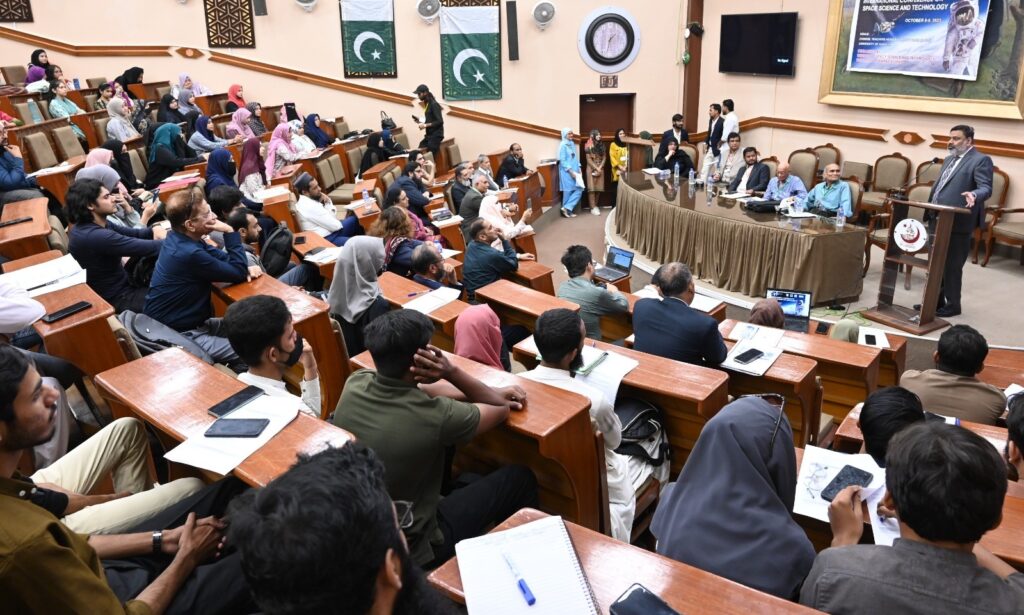
By Musarrat Arif
KARACHI: The Institute of Space Science and Technology (ISST) at the University of Karachi hosted the ninth International Conference on Space Science and Technology on Wednesday at the KU’s Chinese Teachers Memorial Auditorium.
The two-day hybrid event was organized to coincide with World Space Week 2025, highlighting the critical role of space exploration and technology in addressing some of the world’s most pressing challenges. Local and international researchers and experts discussed a wide range of topics, including astronomy, gravitational physics, aviation technology, space weather, climate variability, and geoinformatics science, while exploring the future directions of space exploration and development.
In his presidential address, KU Vice Chancellor Professor Dr Khalid Mahmood Iraqi said space science held the key to humanity’s progress, emphasizing its potential for improving human welfare. He noted that advancements in space technology could offer solutions to pressing social challenges and encouraged young people to pursue research and innovation in the field.
“Space science has become a cornerstone of scientific progress, influencing multiple aspects of human life. Our youth must step forward, harness their talents, and explore new research pathways,” he said, highlighting the transformative role space technology had played in developed nations, particularly in healthcare, transportation, public safety, energy, and industrial production. He added that in Pakistan, its applications remained limited, largely confined to environmental monitoring, weather forecasting, and natural resource management.
Professor Dr Iraqi stressed the need for Pakistani scientists to move beyond individual efforts and embrace collaborative research to address societal issues such as rising sea levels, heatwaves, and extreme rainfall events.
Speakers at the conference included Professor Dr Muhammad Amin from the Institute of Space Technology, Islamabad, who explained the critical role of antennas and their “directivity” in communication systems. Firuza Rahmatullaeva, presenting online from Dushanbe, Tajikistan, discussed long-period comets and temporal variations in cometary dust color, contributing to understanding cometary activity and the delivery of organic compounds to the inner Solar System.
The conference also featured international online presentations by Professor Dr Hongming Tang from China and Dr Rafeel Riaz from the University of Bernardo O’Higgins, Chile. National experts physically present included Professor Dr Asghar Qadir, Professor Dr Muhammad Sharif, Professor Dr Khan Alam, Dr Madeeha Talha, Professor Dr Muhammad Amin, and faculty members from various KU departments.
Professor Dr Muhammad Jawed Iqbal, convener of the conference and ISST director, highlighted the destabilization of Earth’s major systems due to climate change and the importance of green technology, reforestation, and mitigation strategies. He also warned about the growing militarization of space and its potential risks. He added that ISST played a prominent role in promoting space science education and research in Pakistan and stressed that World Space Week, celebrated globally from October 4 to 10, aimed to raise public awareness—especially among the youth—about the significance of space science.


